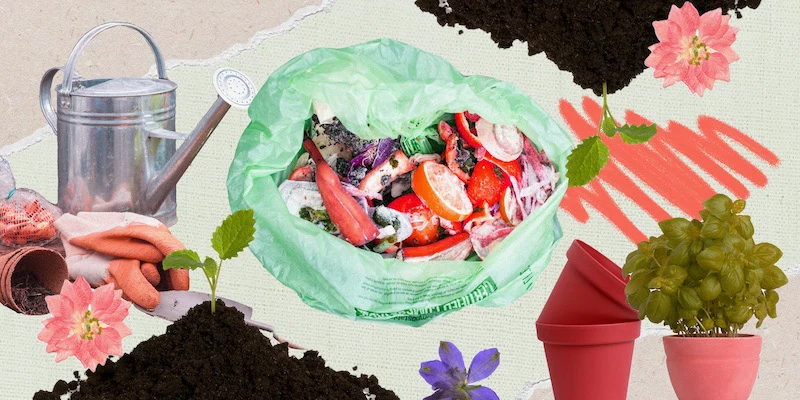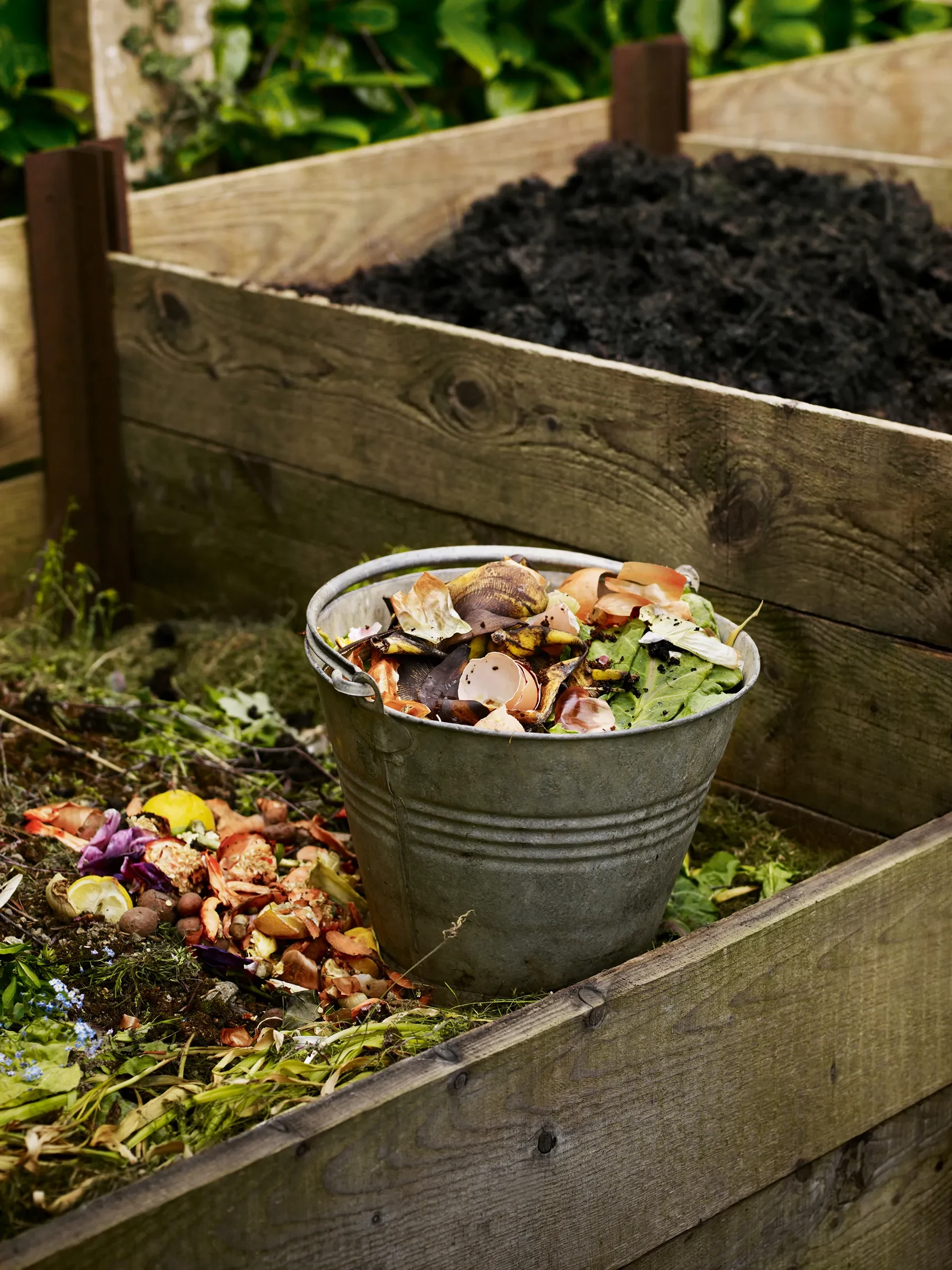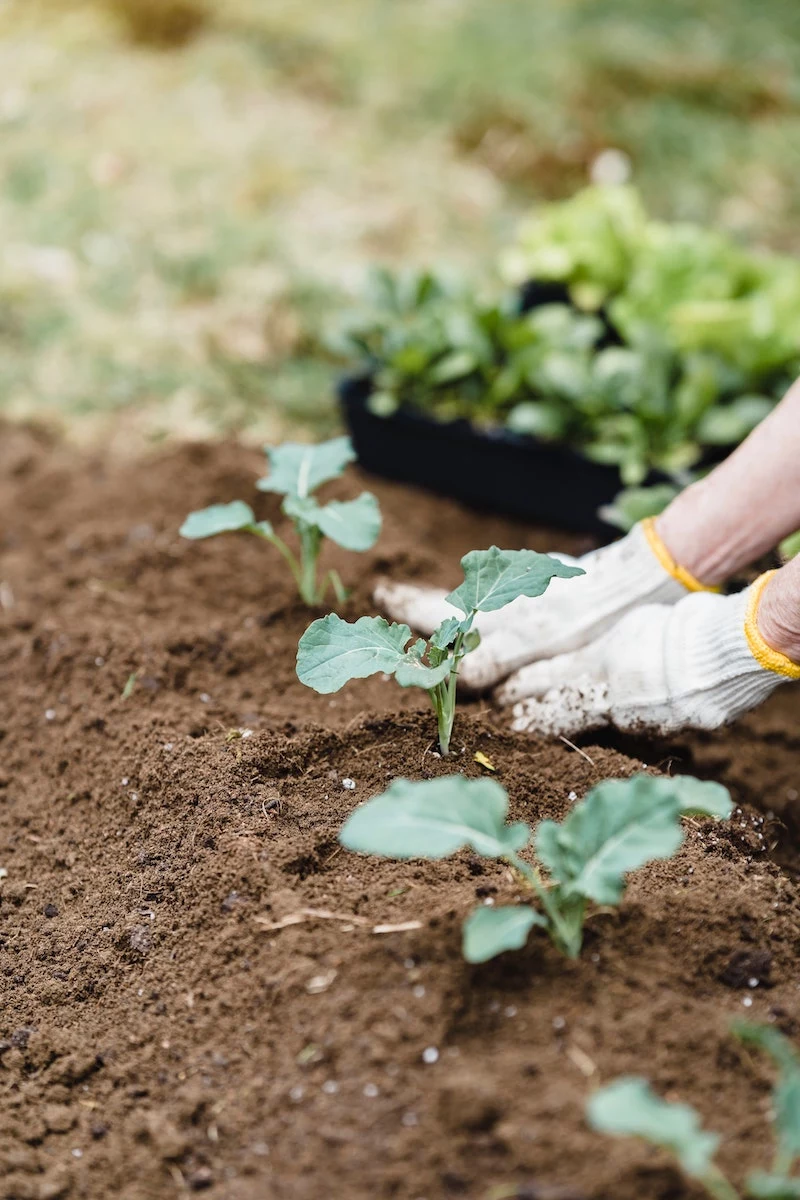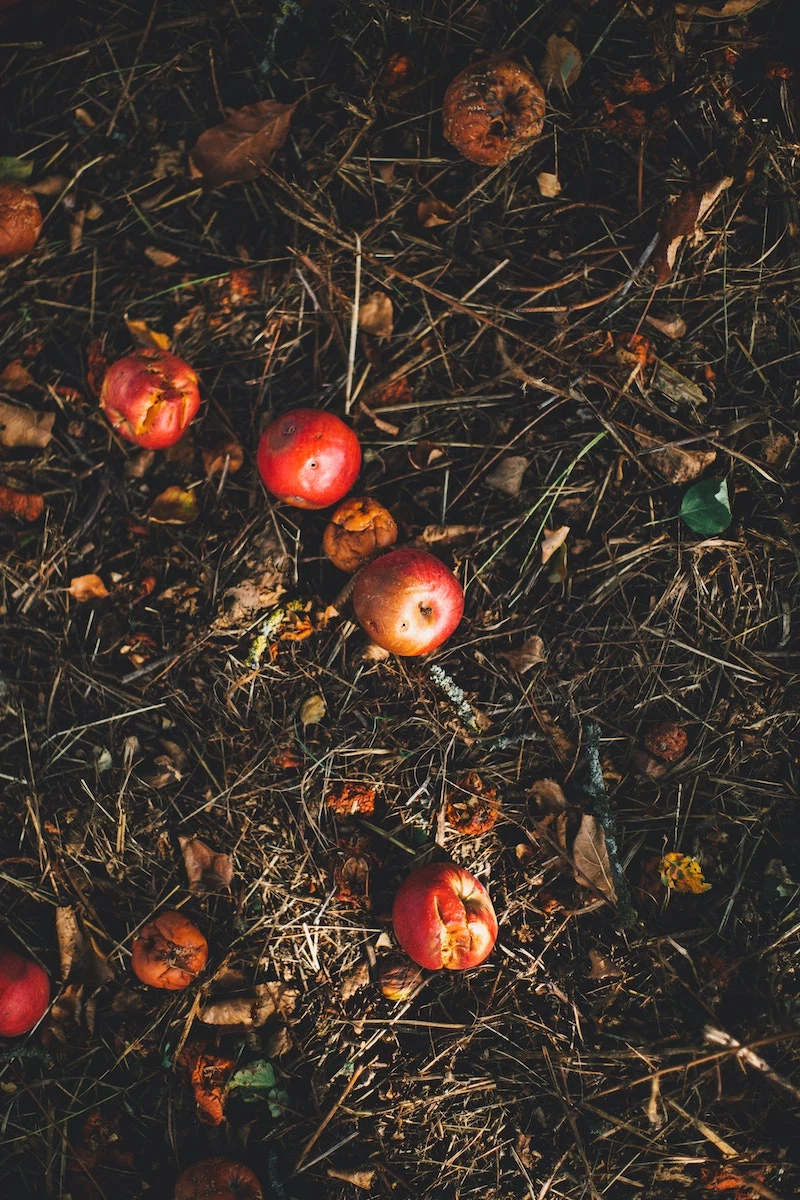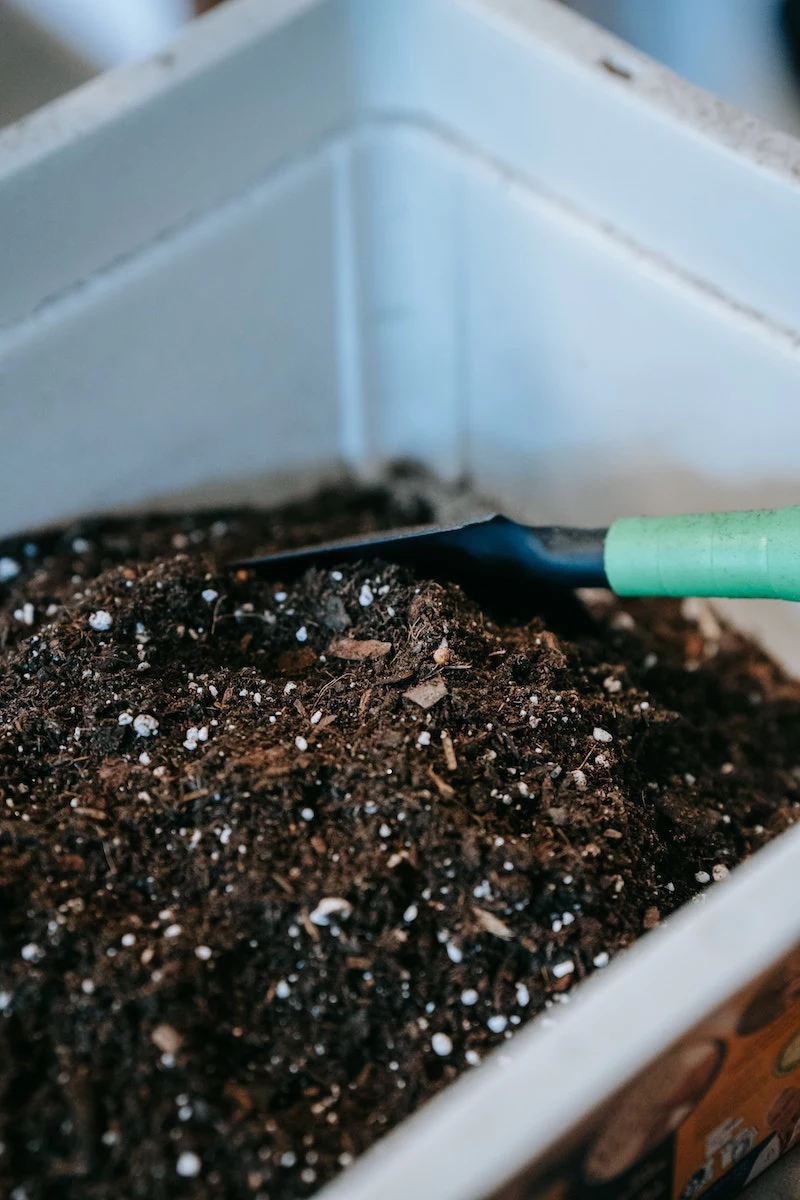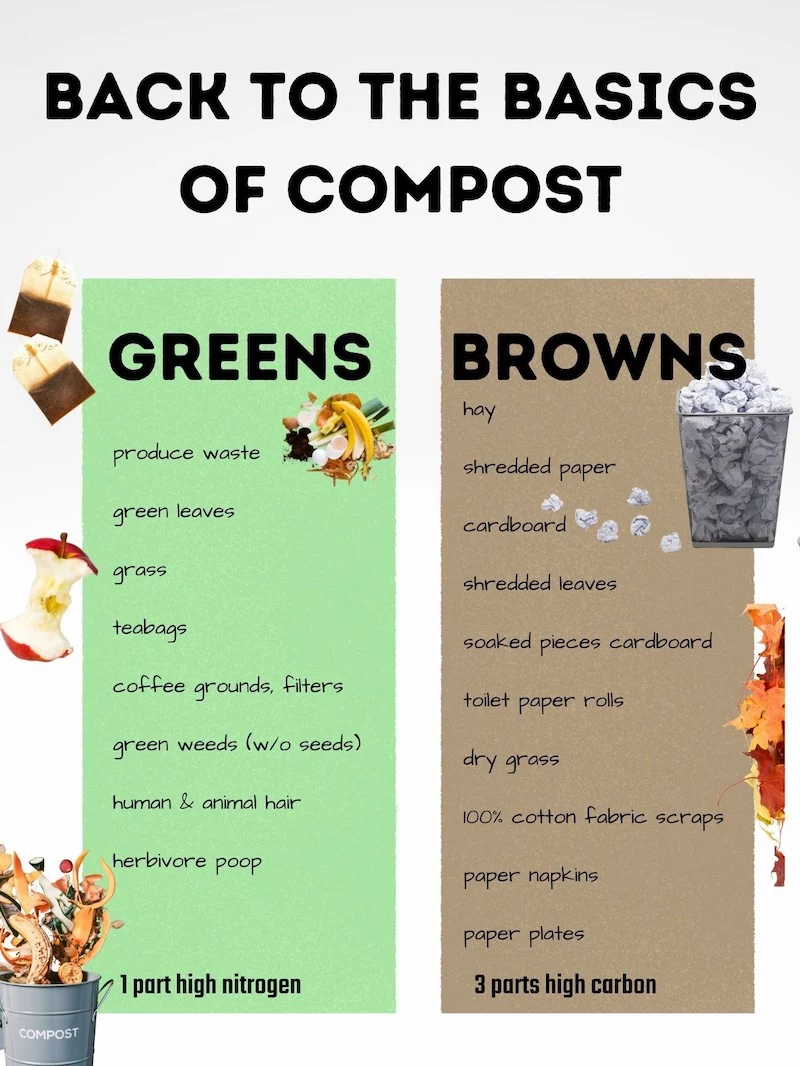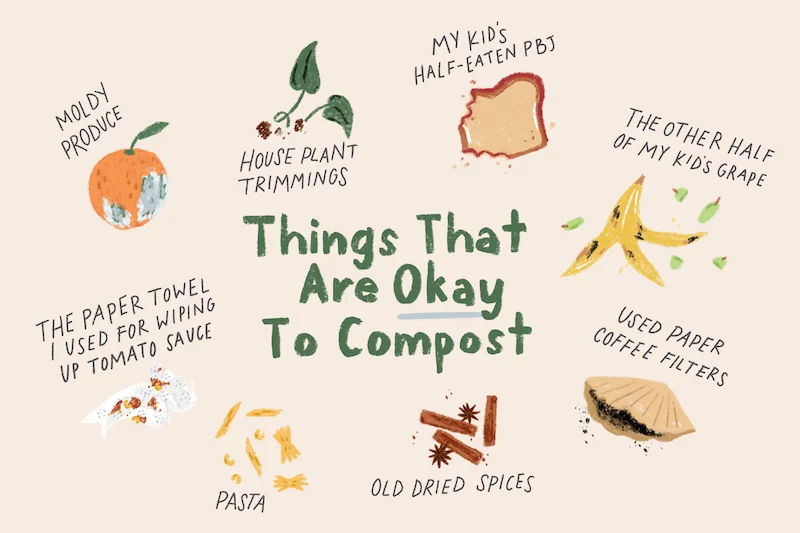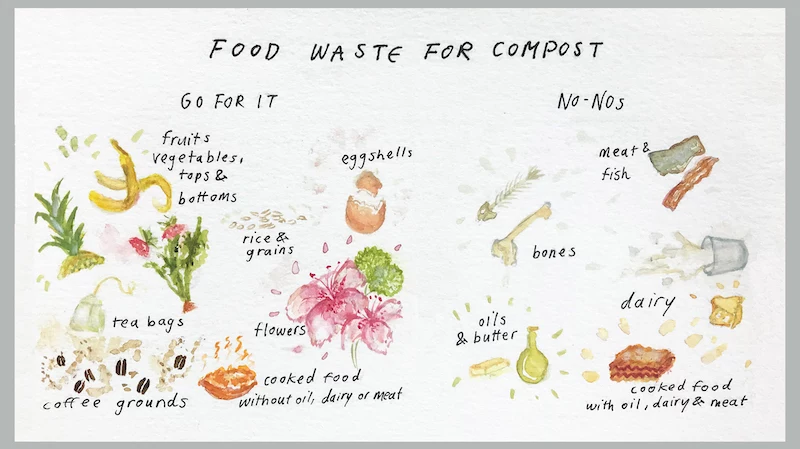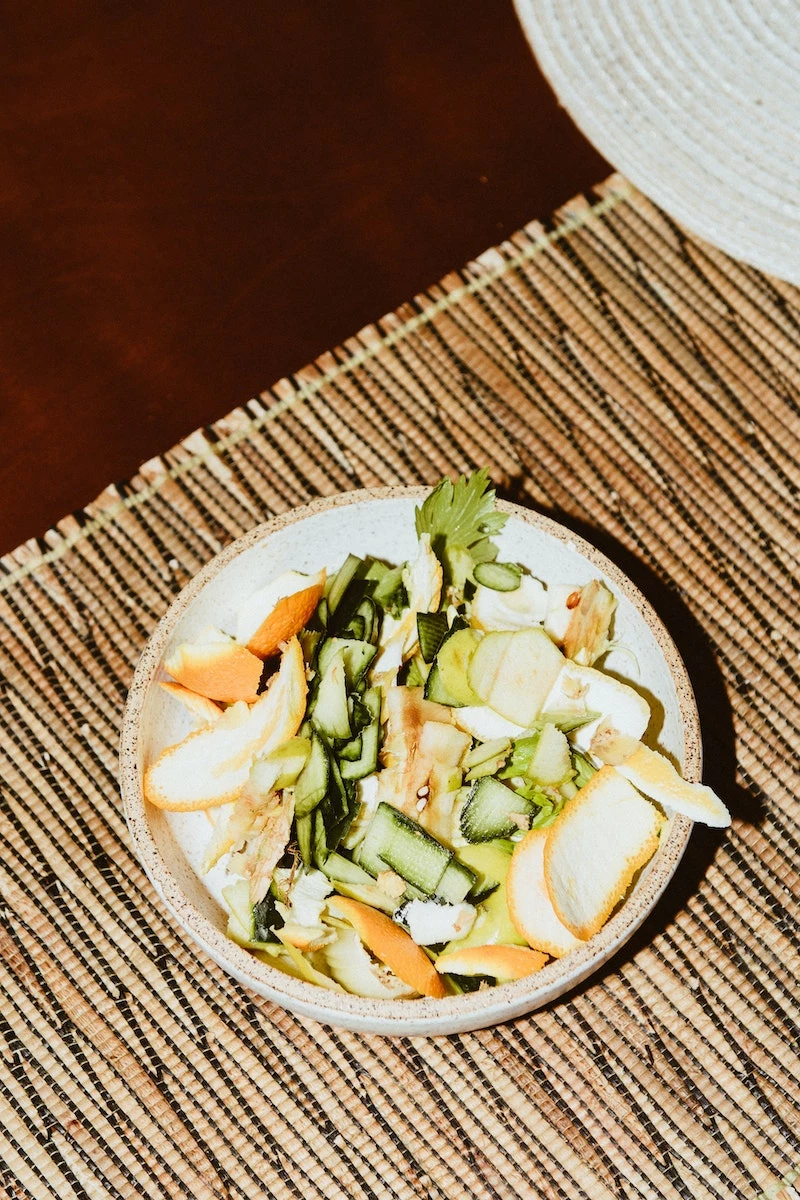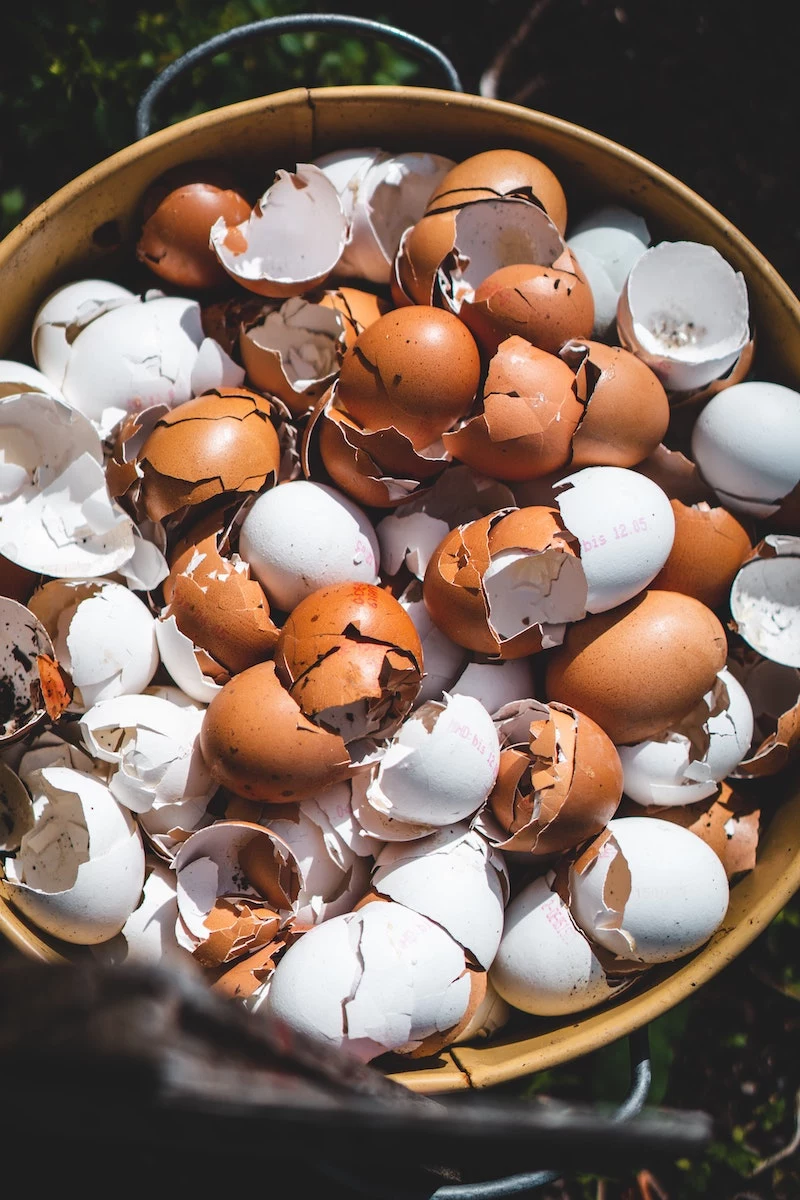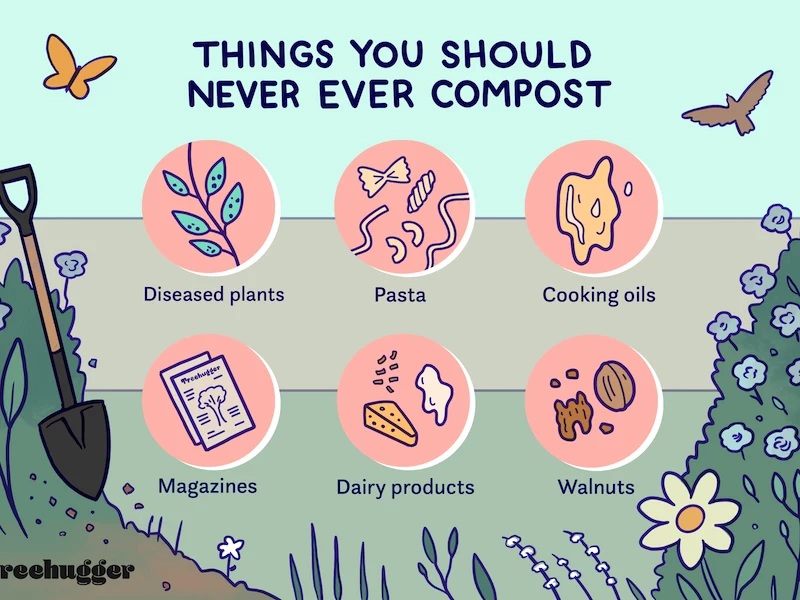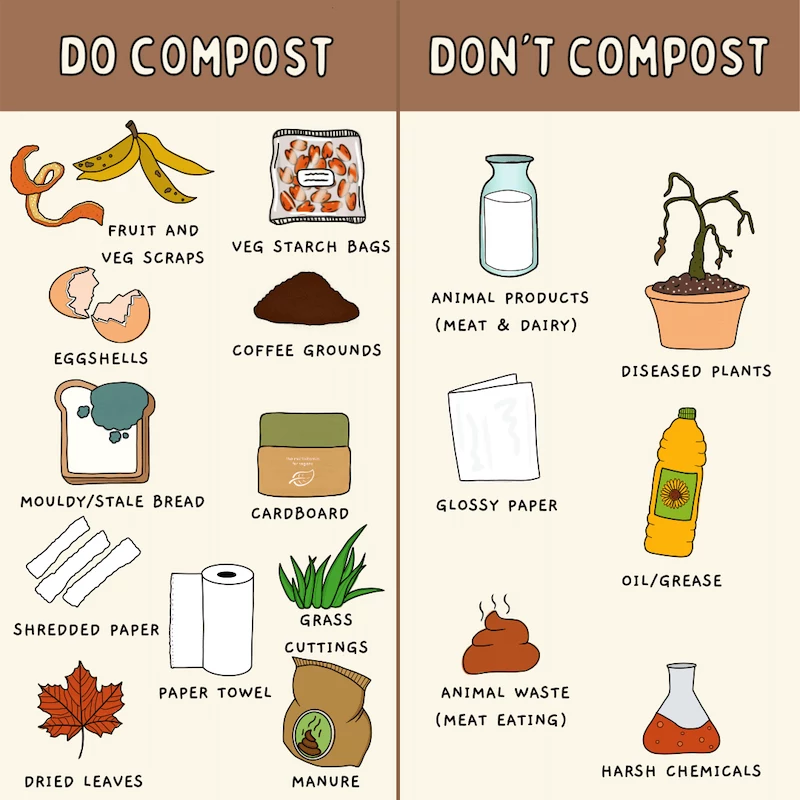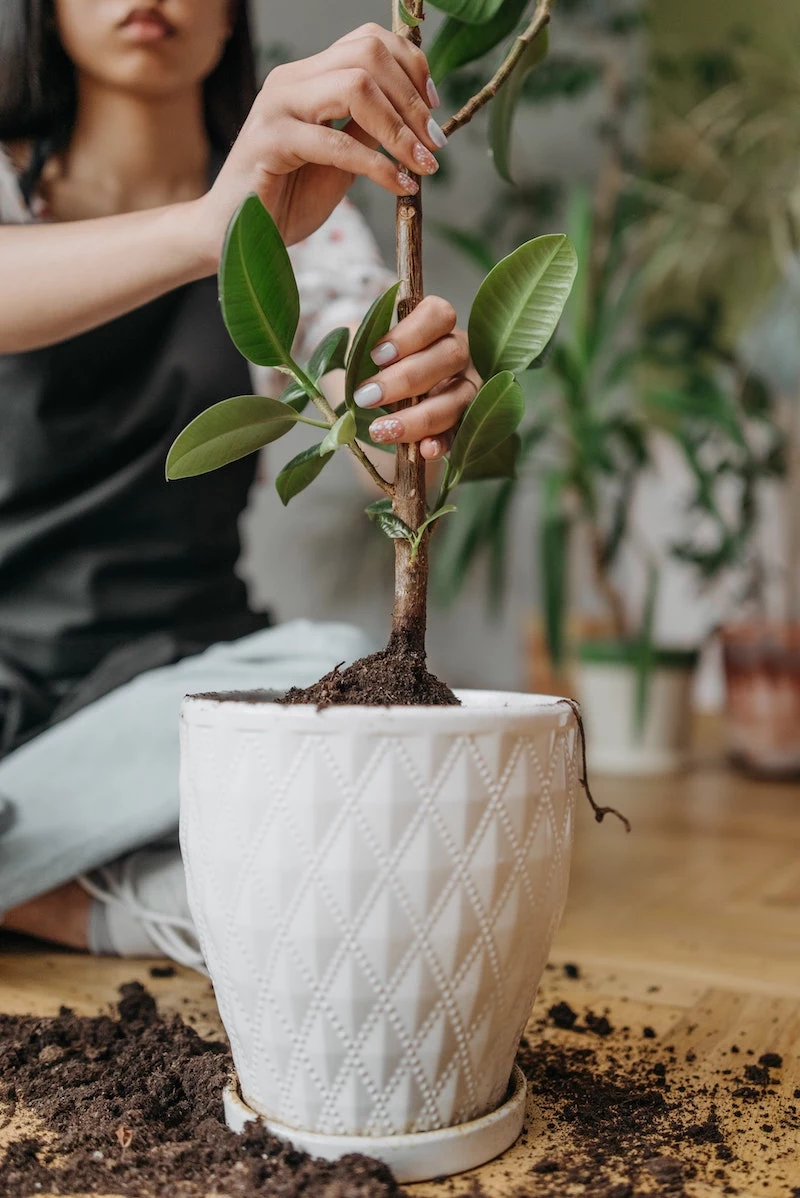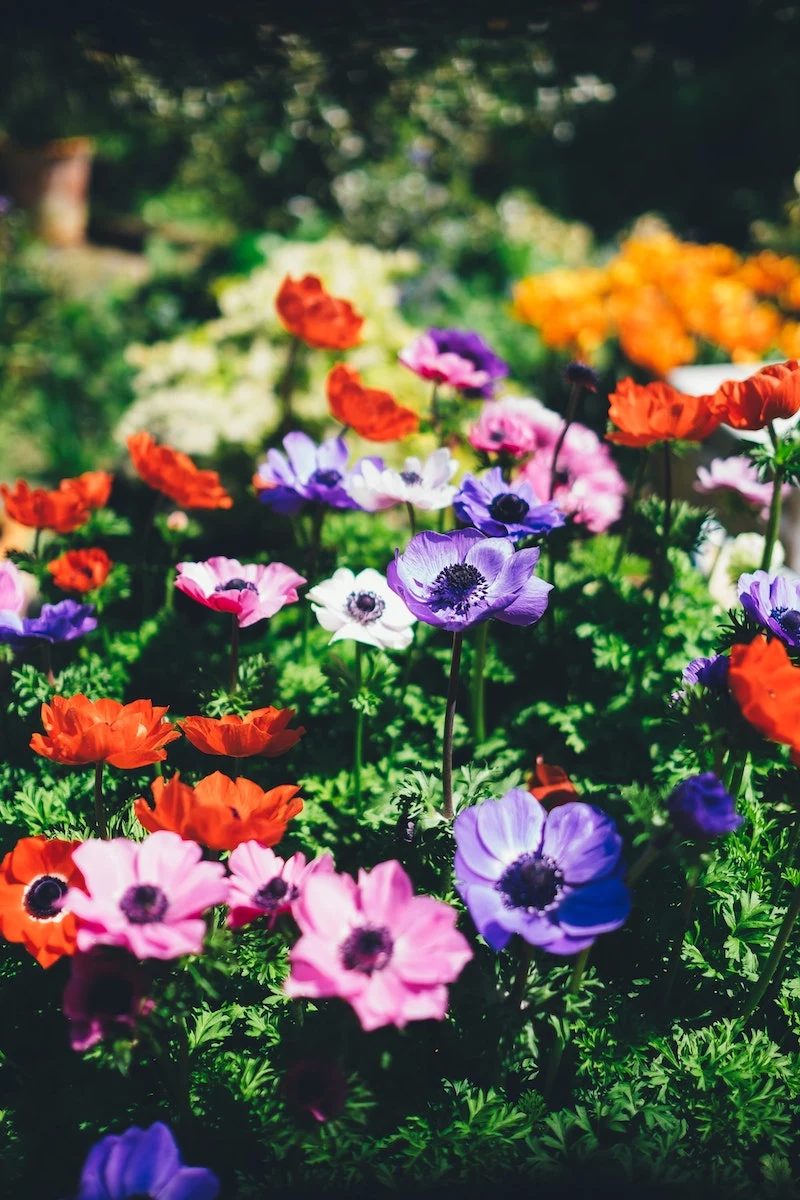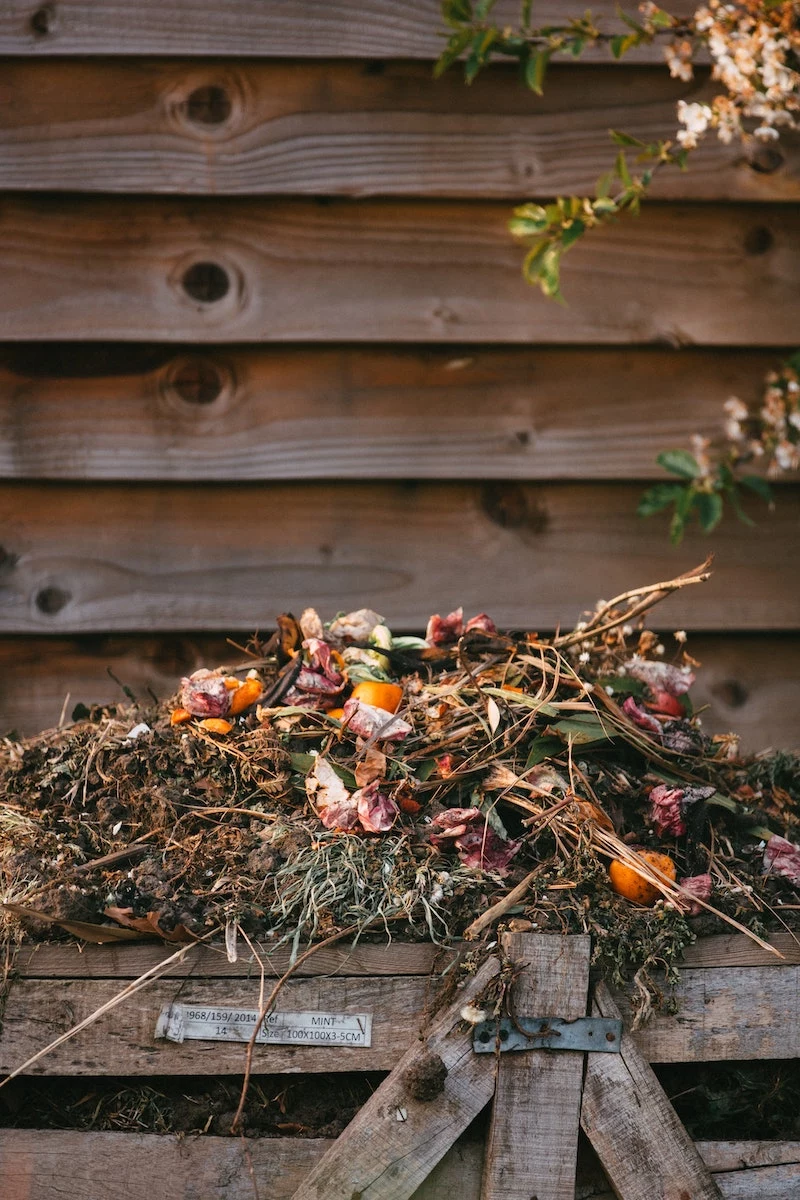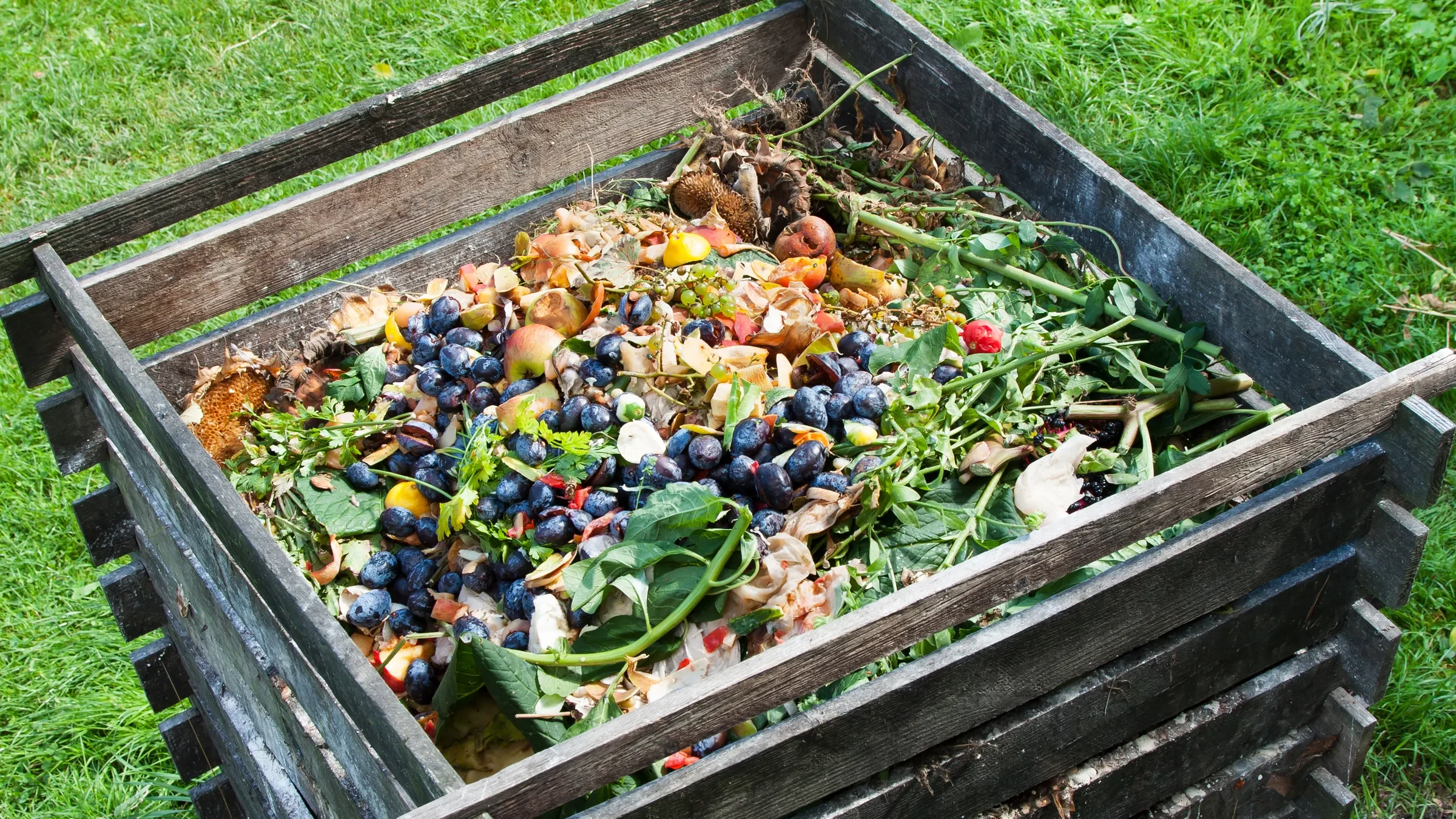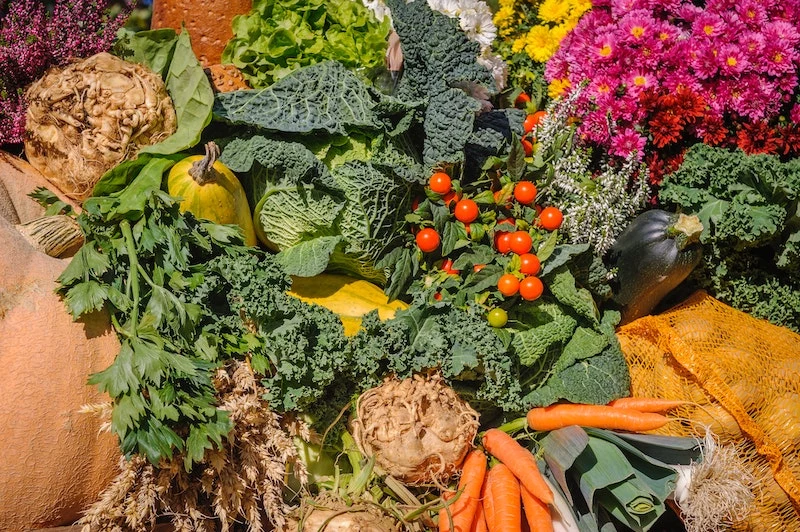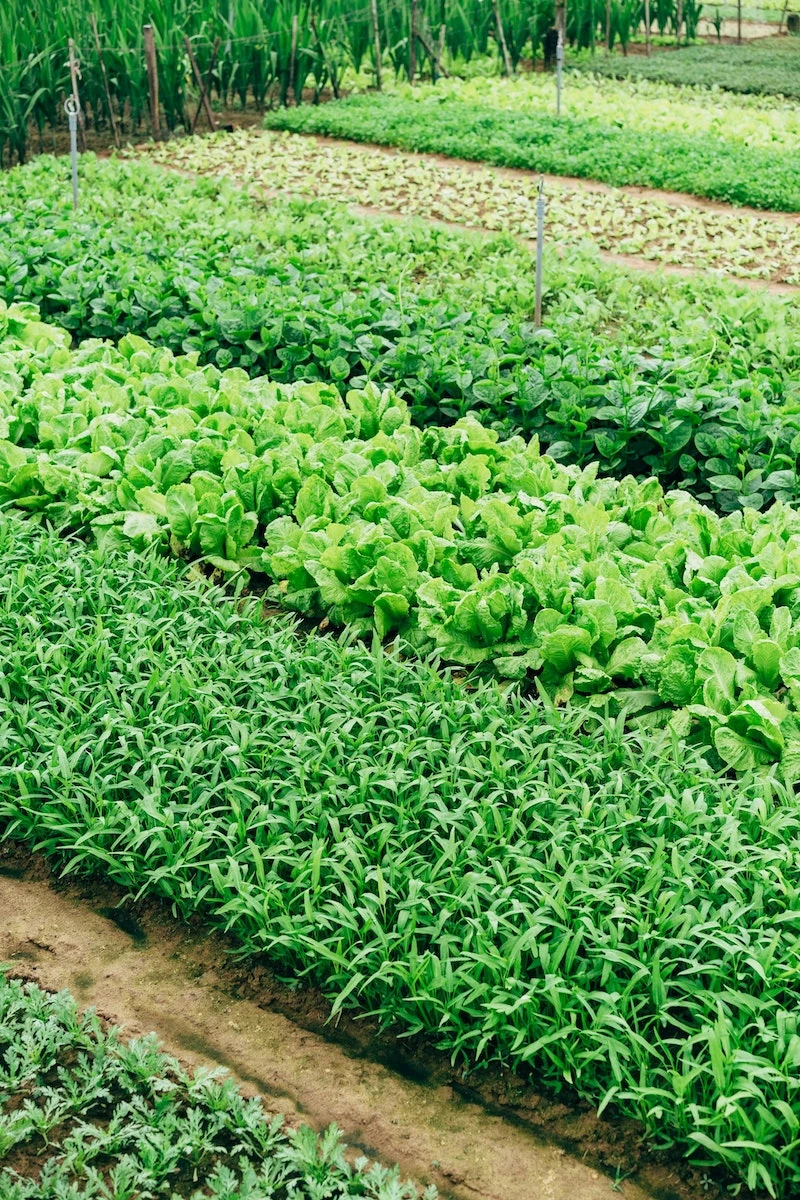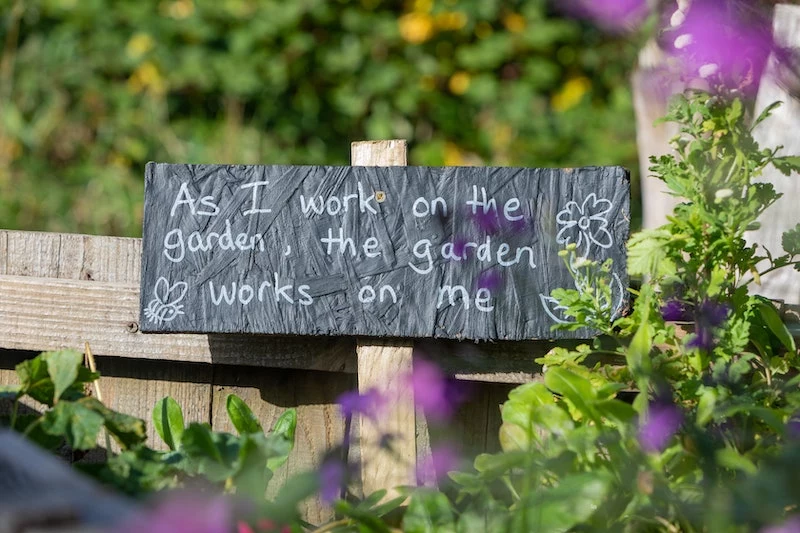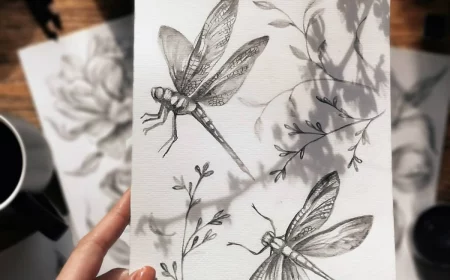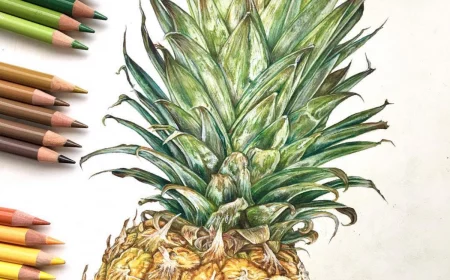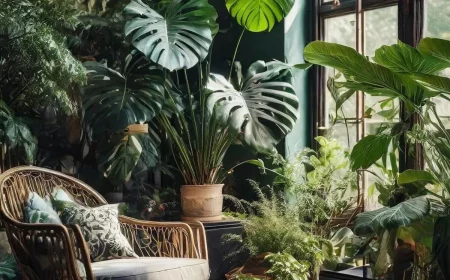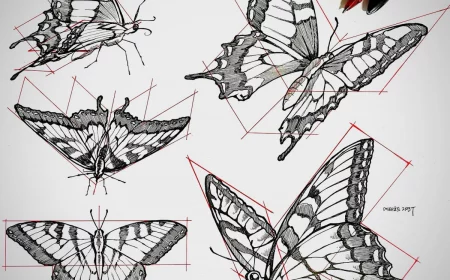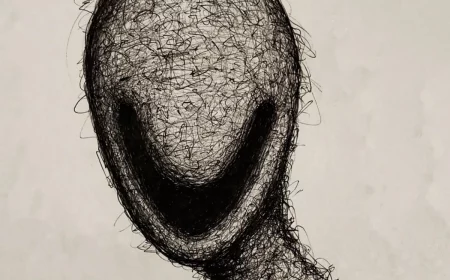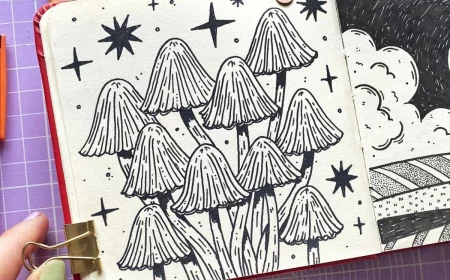Organic Compost Guide: Tips & Advice for making your own compost at home
Want to make compost for your garden but don’t know how? Compost is an old companion of the gardener. There is hardly a country house without a special place for the organic waste, with the help of which people grow the most delicious fruits and vegetables. Home composting, besides being a great fertilizer, is the best thing you can do in caring for nature. Why? Because this way, you will be able to recover a large part of your household waste. Almost two-thirds of household waste consists of organic materials that break down naturally. In order to be able to answer the question of how to compost at home, you should first familiarize yourself with the basic rules of composting. Making your own compost will help you control your waste and plants better. So, without further ado, let’s get into this organic compost guide:
Let’s start with this organic compost guide:
What is composting?
Compost is an organic material that is used to feed the soil in an environmentally friendly way. The method of composting, simply put, is the breaking down of organic matter with the help of oxygen and microorganisms to produce a friable mass. In this article, we will give you all the composting information you need as a beginner. If you are a beginner gardener, take a look at our spring gardening guide to see how to prep your garden for the spring season!
Composting feeds the soil in an environmentally-friendly way
What are the best conditions for composting?
Although composting is using natural processes, to get good compost, you need to maintain certain moisture, oxygen, and temperature levels and keep the correct carbon and nitrogen ratio.
- Oxygen >5%
- Humidity 40-60%
- Ratio Carbon Nitrogen C: N=30:1
- Temperature 32/60 degrees Celsius
Making homemade compost fertilizer requires some effort, but it will be worth it!
What are the composting phases?
Composting consists of two phases: decomposition and maturation.
Decomposition of the organic matter in the compost
This phase starts as soon as you accumulate the materials. The decomposition itself is carried out by micro-organisms, which consume oxygen and release carbon dioxide, creating energy that raises the temperature in the first week to 45-60 degrees Celsius. If the temperature of the compost heap continues to rise, it needs to be stirred to cool it down and supply more oxygen. This phase lasts up to several weeks. The end result is fresh compost.
The decomposition of the compost takes several months
Ripening of the compost
In this phase, the temperature of the compost begins to drop progressively until it reaches about 20-25 degrees Celsius. Compost maturation can take up to several months and in the end, a mature (stabilized) compost will be produced.
The end result of composting is the food your plants need to grow healthy
What are the active substances in the different composting materials?
The waste is divided into “green” high-N (N) and “brown” high-C (C) materials, with the carbon-rich materials decomposing quickly and the N-rich materials decomposing slowly.
- Nitrogen-rich materials (N) – fruit and vegetable peelings and residues, flowers, freshly cut grass, dried flowers, manure, coffee grounds, tea residues, fresh hay
- Carbon-rich materials (C) – dried grass and leaves, straw, wood chips, hay, branches, cardboard packaging, eggshells, bread, pasta, newspapers, and paper
- Food waste – rotten fruit and vegetables, potato peelings, carrots, watermelon, bananas, shredded nuts, and nutshells, crop residues, tobacco waste, flour, wood shavings
Tip: Did you know that you can use used coffee grounds to help your plants grow nice and healthy? If you want to see how to use coffee grounds for your garden, make sure to read our article.
Here you can see a few of the green and brown materials
What kitchen waste can be added to the compost?
Fruits and Vegetables – Decomposition – Comments
- apples – quick decomposition – You need to cut to 3-4 cm
- bananas/banana peels – quick decomposition
- oranges, grapefruits, lemons, limes – moderate decomposition– Avoid adding if compost has worms
- nuts – slow decomposition– If possible grind them because they break down very slowly
- broccoli – moderate decomposition – You should chop them
- cucumbers – quick decomposition – In large quantities, you should add shredded paper to skim off excess moisture
- tomatoes – quick decomposition – For large quantities, add shredded paper to skim off excess moisture
- corn – slow decomposition – Cut the cobs
- lettuce – quick decomposition – If adding large quantities you should add shredded paper to skim off excess moisture
- mangos – quick decomposition
- melons – quick decomposition
- onions – quick decomposition – Avoid if the compost has worms
- peaches – quick decomposition – Pits decompose slowly
- apricots – quick decomposition
- pineapples – slow decomposition –You should chop them
- potatoes – quick decomposition – You should chop them
- pumpkins – quick decomposition – Seeds will decompose slowly
- carrots – quick decomposition
Here are some things that are okay to compost
It is crucial to know what you can and cannot compost
Before you add paper and cardboard to the compost, you need to chop them and wet them. To make the decomposition process easier, chop all the waste finely because large pieces will decompose more slowly.
Save all of your cooking scraps and compost them!
Eggshells can be composted or used as plant fertilizer immediately!
Tip: Knowing where and how to properly store your food is so important in order to limit food waste. That is why we suggest that you take a look at our guide for fruit and vegetable storage. There, you will learn how to make your food last for longer, so you have more time to consume it!
What waste should not be added to the compost?
- meat, fish, bones
- dairy products
- fats and oils
- cooked food
- pet excrement
- coal and coal combustion residues
- synthetic fabrics
- plastics
- metal
- diseased plants
Here are some things you should not compost
After a while, you will know all the basics easily
Here are the biggest composting mistakes you should avoid:
DIY compost for the garden
You can make a compost either in a loose pile or in a larger container. Whichever method you choose, you should bear in mind that compost smells, and sometimes it smells a lot. Nevertheless, the final product of composting will be worth it since it is one of the best organic fertilizers you can give your plants!
Composting is a win-win!
Tip: If you want to really make your garden an eco-friendly place, composting is a great start for limiting your waste and keeping your plants healthy. Another thing you can do is plant some flowers that attract bees, so they can pollinate your garden and turn it into an oasis.
Bee-friendly flowers will make your garden an oasis
DIY compost heap
This is the easiest way to make your own compost. Just pick a spot where it won’t get in the way. The place should be dry and level. You should not expose the pile to direct sunlight and a windy location. Caution: You should make the pile in layers for more even distribution of substances and moisture. Never mix all the waste at once, but gradually layer by layer. Before you start, separate the topsoil, and dig and moisten the site.
If you have a large backyard, this is the method that requires less effort
Make your own compost in a container
Composting can also be done in a larger container such as a barrel, wooden chest, etc. This method is more hygienic and will allow the process to be regulated more easily. In this method, you place branches at the bottom of the composter to allow oxygen to enter.
Tip: If you want to get rid of pests that might be attacking your compost, like mice, make sure to see our organic pest control guide! There you will find many all-natural, zero-waste pest control recipes that will keep both your home and your garden safe and secure!
This method is more hygienic and more easily managed
Steps for composting in a heap and in a bin
- First, collect enough material for one cubic meter pile. Shred all materials to save space.
- After that, fill the bottom with 10/15 cm of straw, paper, leaves, or sawdust.
- Add 10/15 nitrogen-rich materials.
- Then add ⅚ cm of kitchen waste.
- Add a thin layer of soil, leaves, sawdust, or old compost to prevent odors.
- After that, stir in layers rich in Nitrogen and Carbon to add oxygen and help them decompose faster.
- Finally, add the required amount of water (a few drops should fall when squeezed in hand).
This video will help you master composting as a beginner:
Frequently Asked Questions
What waste can I put in the compost?
You can add fruit and vegetable scraps, old and fresh vegetation, paper, etc. to your compost.
Remember that plants, fruits, and veggies are always allowed in the organic compost
What waste should I not put in the compost?
You should NOT add animal residues such as meat and bones, fish, synthetic materials, metal, etc. to your compost.
How long does it take for compost to mature?
If properly managed, your DIY compost will mature in about 6 to 9 months.
After your compost has matured, you can use it to fertilize your vegetable garden
Can I compost if I live in an apartment?
Yes! Check out the video below to see some good tips and ideas.
Watch this video if you want to start composting in your apartment:
What other all-natural alternatives should I look into?
Make sure to check our eco-cleaning guide if you want to see how to clean your home without chemicals and toxins! We share all-nature recipes for cleaning every room in your house.
Now go relax while working on your garden and composting skills!
